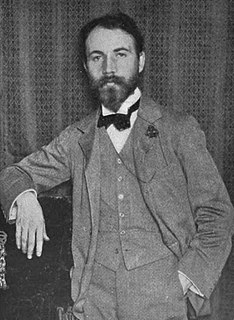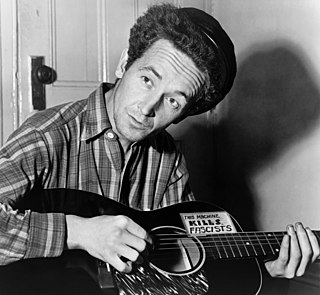A Quote by Andre Malraux
The great Christian art did not die because all possible forms had been used up; it died because faith was being transformed into piety. Now, the same conquest of the outside world that brought in our modern individualism, so different from that of the Renaissance, is by way of relativizing the individual. It is plain to see that man's faculty of transformation, which began by a remaking of the natural world, has ended by calling man himself into question.
Quote Topics
Art
Because
Been
Began
Being
Brought
Calling
Christian
Christian Art
Conquest
Did
Die
Died
Different
Ended
Faculty
Faith
Forms
Great
Great Christian
Had
Himself
Individual
Individualism
Man
Modern
Natural
Natural World
Now
Our
Outside
Outside World
Piety
Plain
Possible
Question
Renaissance
Same
See
Transformation
Transformed
Up
Used
Way
Which
World
Related Quotes
The Renaissance had resulted in the emancipation of the individual, in making him feel that the universe had no other purpose than his happiness. This brought an entirely new answer to the question, 'Why should I do this or that?' It used to be, 'Because self-instituted authority command you.' The answer now was, 'Because it is good for men.' In this lies our greatest debt to the Renaissance, that it instituted the welfare of men as the end of all action.
If we apply the term revolution to what happened in North America between 1776 and 1829, it has a special meaning. Normally, the word describes the process by which man transforms himself from one kind of man, living in one kind of society, with one way of looking at the world, into another kind of man, another society, another conception of life.... The American case is different: it is not a question of the Old Man transforming himself into the New, but of the New Man becoming alive to the fact that he is new, that he has been transformed already without his having realized it.
We are not being true to the artist as a man if we consider his art work junk simply because we differ with his outlook on life. Christian schools, Christian parents, and Christian pastors often have turned off young people at just this point. Because the schools, the pastors, and the parents did not make a distinction between technical excellence and content, the whole of much great art has been rejected with scorn and ridicule. Instead, if the artist's technical excellence is high, he is to be praised for this, even if we differ with his world view. Man must be treated fairly as man.
A Call for Revolution, 1993 Libertarianism is rejected by the modern left - which preaches individualism but practices collectivism. Capitalism is rejected by the modern right - which preaches enterprise but practices protectionism. The libertarian faith in the mind of man is rejected by religionists who have faith only in the sins of man. . . . The libertarian insistence that each man is a sovereign land of liberty, with his primary allegiance to himself, is rejected by patriots who sing of freedom but also shout of banners and boundaries.
I was a breed of people who aren't capable of doing anything, really. At college I began to get the idea that being macho wasn't the accepted norm in the liberal world, and especially the world I entered into, which was the artistic world. I had a lot of problems with that because I was struggling with the need to be proud of being a man, which wasn't something I was feeling.
It is the mark of great art that its appeal is universal and eternal.............. Great art remains stable and unobscure because the feelings that it awakens are independent of time and place, because its kingdom is not of this world. To those who have and hold a sense of the significance of form what does it matter whether the forms that move them were created in Paris the day before yesterday or in Babylon fifty centuries ago? The forms of art are inexhaustible; but all lead by the same road of aesthetic emotion to the same world of aesthetic ecstasy.
The form of government that is most suitable to the artist is no government at all. ... One might point out how the Renaissance was great, because it sought to solve no social problem, and busied itself not about such things, but suffered the individual to develop freely, beautifully, and naturally, and so had great and individual artists, and great, individual men. One might point out how Louis XIV, by creating the modern state, destroyed the individualism of the artist.
There is a metaphysical honour in ending the world's absurdity. Conquest or play-acting, multiple loves, absurd revolt are tributes that man pays to his dignity in a campaign in which he is defeated in advance.... War cannot be negated. One must live it or die of it. So it is with the absurd: it is a question of breathing with it, of recognizing its lessons and recovering their flesh. In this regard the absurd joy par excellence is creation. "Art and nothing but art", said Nietzsche, "we have art in order not to die of the truth."
No two men see the world exactly alike, and different temperaments will apply in different ways a principle that they both acknowledge. The same man will, indeed, often see and judge the same things differently on different occasions: early convictions must give way to more mature ones. Nevertheless, may not the opinions that a man holds and expresses withstand all trials, if he only remains true to himself and others?
It cannot be too strongly asserted that the insistence on blind, unreasoning faith is due mainly to the maintenance of a subject-matter upon which there was no knowledge, namely the 'other world'; and that this basis was assumed because of early man's preoccupation with death. It is, unfortunately, quite possible to believe a thing which is contradicted by facts, especially if the facts are not generally known; but if the whole position on which we rested our religions had been visibly opposed by what we did know, even the unthinking masses would, in time, have noticed it.
In like manner the effect of every action is measured by the depth of the sentiment from which it proceeds. The great man knew not that he was great. It took a century or two for that fact to appear. What he did, he did, he did because he must; it was the most natural thing in the world, and grew out of the circumstances of the moment.
There can be no conquest to the man who dwells in the narrow and small environment of a groveling life, and there can be no vision to the man the horizon of whose vision is limited by the bounds of self. But the great things of the world, the great accomplishments of the world, have been achieved by men who had high ideals and who have received great visions. The path is not easy, the climbing is rugged and hard, but the glory at the end is worthwhile.
In the same way a Christian is not a man who never goes wrong, but a man is enabled to repent and pick himself up and begin over again after each stumble--because the Christ-life is inside him, repairing him all the time, enabling him to repeat (in some degree) the kind of voluntary death which Christ Himself carried out." - Mere Christianity
My whole worldview has changed because of the work that I do. Specifically, the way in which I appropriate my own faith as a Christian, and the way in which I think about the faith and life of others who are very different than myself. That mutuality of regard is how we deal with difference and diversity in the world.






































